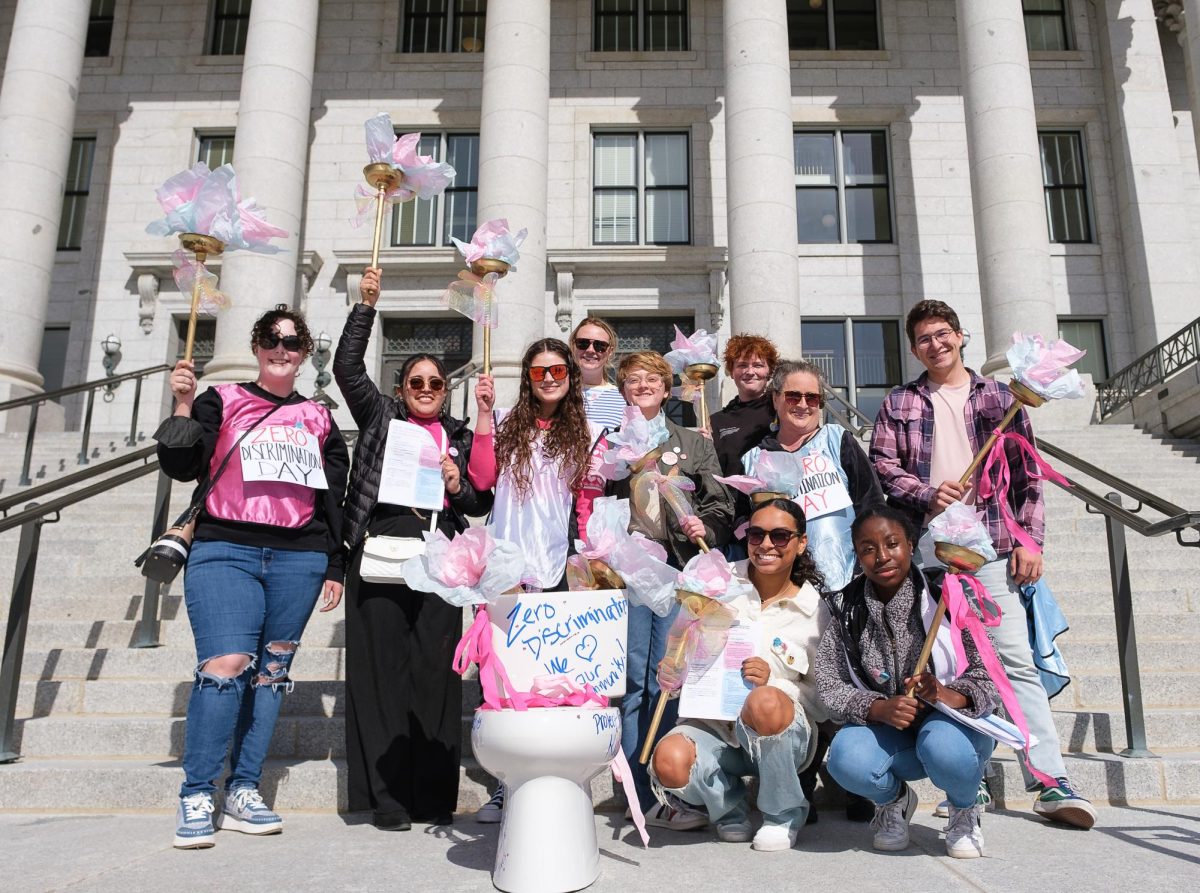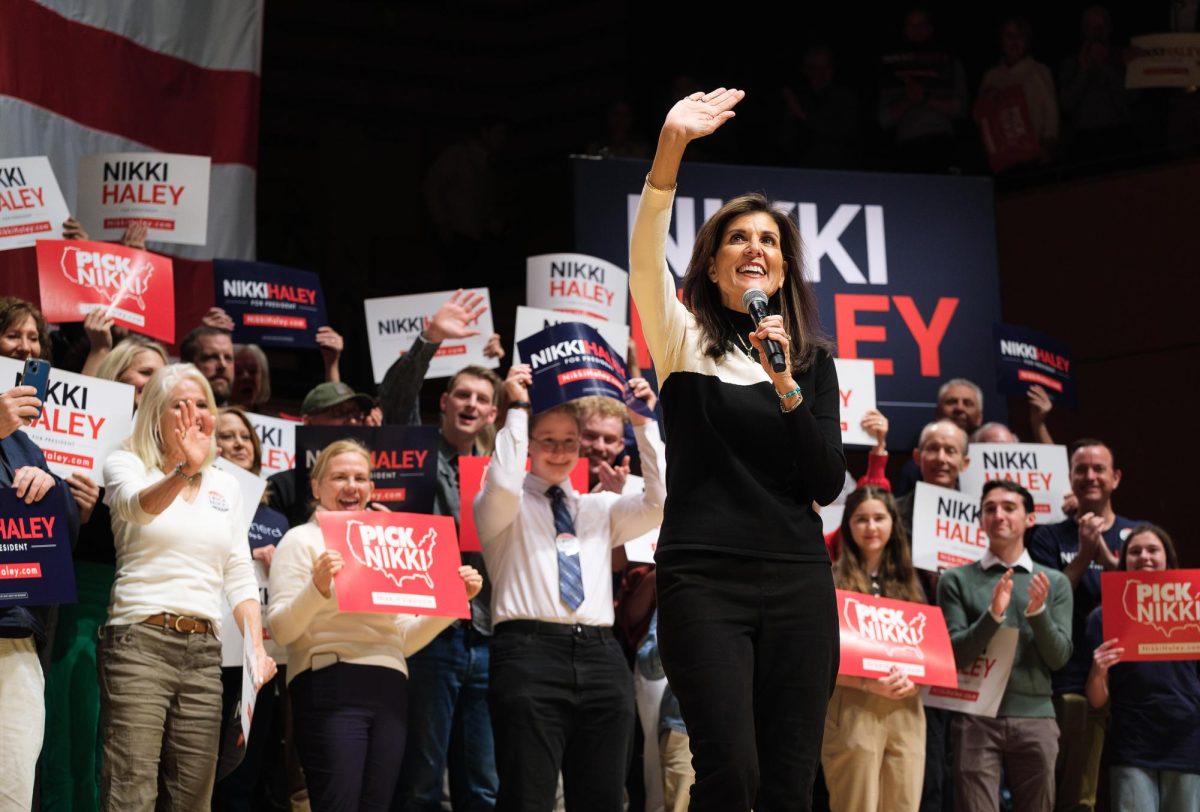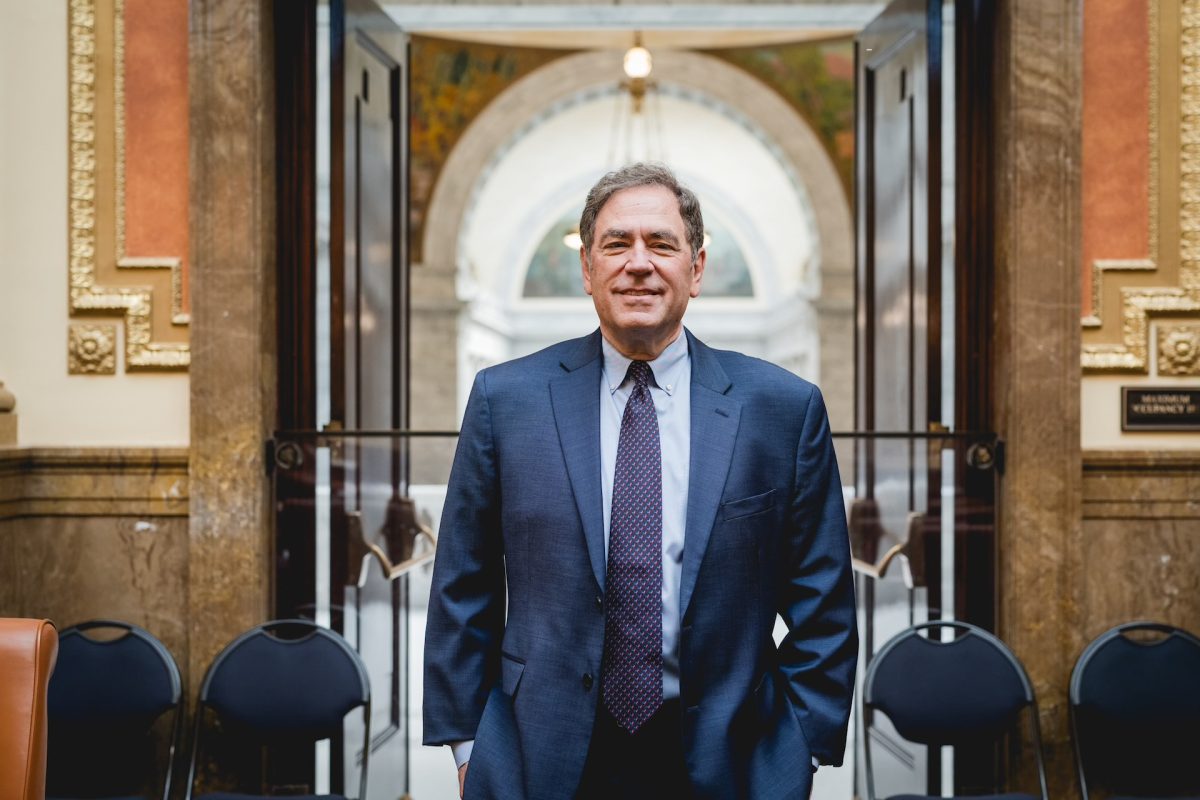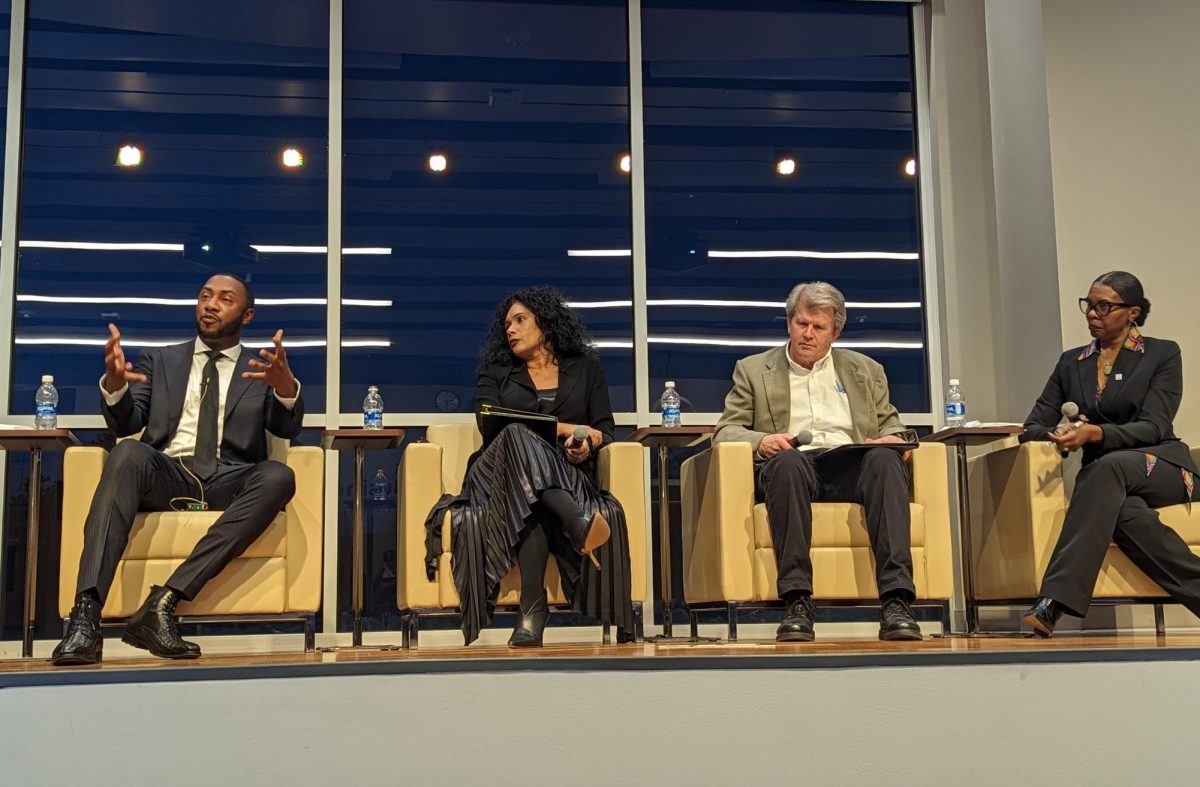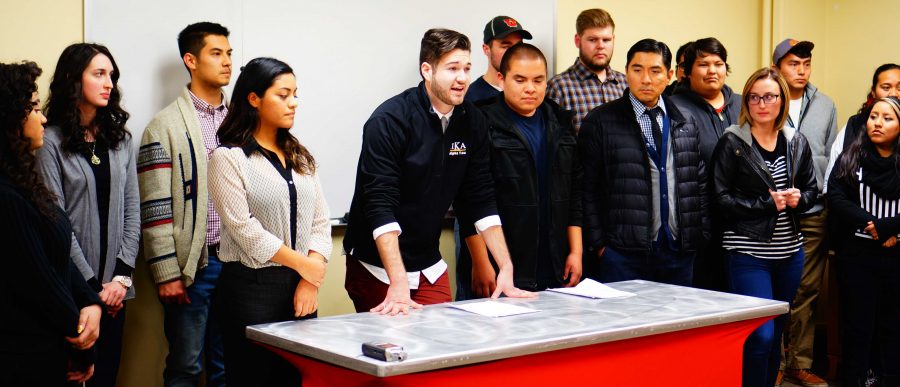Halfway through the meeting, Sen. Andy Moyle pulled out his copy of A People’s History of the United States and thumbed to an underlined section on page five.
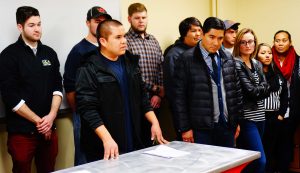
“By the year 1515, there were perhaps 50,000 Indians left,” he read aloud. “By 1550, there were 500.”
Moyle, a Caucasian, used the passage describing Christopher Columbus’ landing in Haiti and its affect on the native populations to express his animosity toward the 15th century explorer at the ASUU Senate meeting Thursday night. The legislative body, in accordance with Moyle’s statements, voted unanimously to replace the university’s observance of Columbus Day with Indigenous Peoples’ Day, intended to celebrate Utah’s eight Native American tribes and those who lived on the continent before Columbus’ 1492 arrival.
Vice President Anthony Fratto, also a Caucasian, said the shift recognizes “what it means to be an American” instead of someone who conquered and killed native peoples. He believes it is especially crucial for the U to support the legislation because of the university’s connections to the Ute tribe.
Fratto and Student Body President Ambra Jackson, who will present the measure before the Board of Trustees on Feb. 9, have worked on this bill since Fall Semester but faced conflict in both the Assembly and the Senate.
“I feel like this bill shouldn’t be an issue of contention,” Fratto said.
The ASUU Assembly meeting held Tuesday, which carried two opposing votes on the resolution, displayed some of those concerns. Rep. Jessica Craig, a Caucasian, questioned why they’d want to erase part of American history and wondered whether they could hold the holidays on two separate days.
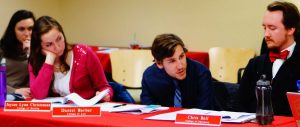
The Senate meeting echoed those sentiments in a quieter tone. Sen. Daniel Barber, a Caucasian, said his constituents wondered about celebrating North American Heritage Day instead of Indigenous Peoples’ Day to respect all cultures that “contribute to the diversity of the continent today.” One member of the audience, a person of color, shook his head in disapproval over the proposal.
“The vantage point that we’re coming from is 500 years of oversight,” said Kyle Ethelbah, a White Mountain Apache and director of the U’s TRiO Programs, responding to Barber’s suggestion. “We want an opportunity to be able to only celebrate our own culture and bring this awareness. My fear is that the blanket celebration would do what we’ve done already” in failing to recognize native tribes.
Several attendees around the room whispered “that’s right” after Ethelbah spoke.
About ten other members from various tribes stood around Fratto as he presented the bill, encouraging him and supporting the initiative. Orville Cayaditto, a Navajo and president of the Inter Tribal Student Association at the U, said Indigenous Peoples’ Day would create a dialogue on campus about the “ongoing marginalization, discrimination and poverty that indigenous communities face to this day.”
He hopes to create events, which he said Columbus Day generally doesn’t have, celebrating the new holiday and creating awareness similar to those the Inter Tribal Student Association and the American Indian Resource Center at the U hold throughout the year, such as powwows and lectures featuring prominent tribal leaders.
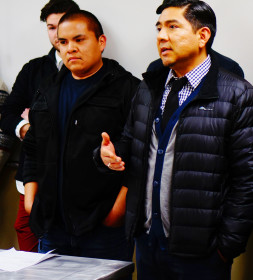
“It is time to recognize these tribes and recognize the humanity in our history,” he said.
Cayaditto wants tribal peoples attending the U to feel welcome on campus, especially as they don’t make up a large part of the student population. During Fall Semester 2015, for example, there were 119 Native American undergraduates enrolled at the university, about 0.5 percent of the student body, according to the Office for Budget and Institutional Analysis.
Sen. John Muhs, a Caucasian, believes replacing Columbus Day, observed the second Monday of October, will give students a chance to learn the real and unsettling history of colonialism on this continent – something Muhs said he never got during his Eurocentric, “biased education” growing up in the U.S.
“I think there’s a lot about the history of indigenous people that I have no idea about,” he said, “yet I know all about [Columbus], who came to America with the prospect of profit and gains.”
A few other colleges in the nation have passed similar resolutions, such as Oklahoma University and the University of Alaska Southeast. Utah State University and Salt Lake Community College are considering a switch to Indigenous Peoples’ Day but have not yet passed any legislation on the topic. All universities in the state, at this point, recognize Columbus Day on school calendars.
ASUU Government Relations Director Connor Yakaitis is working on a motion with the Utah Legislature to have Indigenous Peoples’ Day celebrated statewide. State Sen. Jim Dabakis (D-Salt Lake City) plans to file a bill this week and wrote the U’s student body government asking them to support the initiative on campus.
At least seven states have changed their observance of Columbus Day, a federally recognized holiday since 1937, to be more inclusive.
@CourtneyLTanner
















